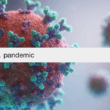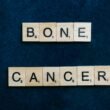
Do you or a loved one suffer from depression? In such a case, you are at the correct spot. Please accept my sincere welcome to A Comprehensive Guide to the Treatment for Depression.” We will go deeply into depression in this thorough book, learning about its origins, symptoms, and, most crucially, effective treatment choices. This book is intended to provide you with the information and tools needed to negotiate the difficult path to recovery, whether you’re looking for assistance for yourself or attempting to support a loved one. We will examine conventional and nontraditional therapy modalities emphasizing empowering people and giving you various alternatives. This manual is your road map to discovering hope, healing, and happiness, covering everything from therapy and medicine to lifestyle modifications and self-care techniques. Let’s start on this path to reclaim our lives and empower ourselves and others to beat depression.
Understanding depression: causes, symptoms, and types
Navigating the labyrinth of depression, an intricate psychological malady finds increasing global inhabitants entwined within its vast, challenging terrain. For a proficient compass pointing towards an accurate diagnosis and a map sketching the path for successfully managing this condition, one needs an enlightened understanding of its intricate roots, multifaceted symptoms, and variegated shades. Depression’s cradle rocks on an assembly of contributing factors, painting a canvas amalgam of genetic threads, biochemical whispers, environmental echoes, and psychological shadows. Protagonists at this stage might feature a familial lineage-linked with depression, a symphony of chemical discords in the brain’s harmonies, life chapters marked by traumatizing experiences, persistent illnesses scripting their subplots, and the role of certain medications.
The expressive face of depression dons different masks across individuals, yet a common masquerade often includes a shroud of sustained melancholy, evaporating zest in life’s enjoyable pursuits, a seesaw in dietary patterns and nocturnal rhythms, a blanket of ceaseless exhaustion, a foggy concentration, and a dangerous dance with thoughts of self-destruction or suicidal ideations. It’s a poignant note in the Life score that every soul sings its version of the depression ballad, and not every verse will resonate with all the symptoms.
Depression’s chameleon nature reveals itself in various forms, such as the motherly woes in postpartum depression, the polar emotional swings in bipolar disorder, the profound sadness in major depressive disorder, and the constant undercurrent in persistent depressive disorder. Each species in this genus carries its unique diagnostic criteria and therapeutic strategies. Deciphering the cryptic language of depression’s causes, signals, and diverse subtypes empowers us with an informed lens for a more precise self-diagnosis or recognition in those our hearts hold dear, steering the compass towards the haven of suitable treatment.
The importance of seeking professional help for depression
When it comes to managing depression, getting expert assistance is essential. While it may be tempting to attempt to manage depression alone, it’s crucial to remember that it’s a severe medical condition that calls for professional assistance and direction. Therapists, psychologists, and psychiatrists are among the mental health specialists trained to identify and successfully treat depression.
Therapy is a popular and efficient kind of therapy for depression. It has been shown that Cognitive Behavioural Therapy (CBT) is quite effective in assisting people in managing and overcoming their depression symptoms. The main goal of CBT is to identify and alter the unhelpful thinking patterns and behaviors that lead to depression. Individuals might acquire coping skills and cultivate better thinking methods via frequent therapy sessions.
Sometimes doctors may recommend medicine to treat depression symptoms. Antidepressant drugs function by restoring the proper balance of brain chemicals related to mood control. Nevertheless, it is crucial to remember that medicine must always be given and overseen by a licensed healthcare provider. You should decide with your doctor whether to take a medicine, balancing any potential advantages against any potential drawbacks.
Different options of the treatment for depression: therapy, medication, and alternative approaches
Depression is a highly individualized disorder. Therefore, treatment options may vary from person to person. Investigating a range of therapy alternatives is crucial to determine which is best for you. Although conventional methods like counseling and medicine may be quite successful in treating depression, unconventional methods can also be very helpful.
CBT, or cognitive behavioral therapy, is a well-known and scientifically supported treatment for depression. Through identifying and challenging negative thought patterns, CBT aids people in replacing them with more optimistic and realistic ways of thinking. Individuals may learn coping mechanisms and techniques to manage their depression via therapy sessions successfully.
Additionally useful in the treatment of depression is medication. Serotonin reuptake inhibitors (SSRIs) and serotonin-norepinephrine reuptake inhibitors (SNRIs), two types of antidepressant drugs, may assist in balancing brain chemistry and lessen depressive symptoms. But since adverse effects and combinations might happen, medicine should always be given and overseen by a medical expert.
Alternative methods may be helpful in treating depression in addition to treatment and medicine. It has been shown that regular exercise releases endorphins, which are the brain’s natural mood-enhancing chemicals. Your mental health might benefit if you include exercise in your regimen. The diet also controls depression since certain meals may affect how you feel and how much energy you have. A balanced diet of fresh produce, whole grains, lean proteins, and other nutrients helps promote general mental health.
Alternative treatments, including herbal supplements, acupuncture, and meditation, have also shown efficacy in reducing the symptoms of depression. Even though these strategies may not be effective for everyone, they should be investigated as a part of an all-encompassing therapeutic strategy.
Cognitive Behavioral Therapy (CBT) as the treatment for depression
A popular and successful treatment for treating depression is cognitive behavioral therapy (CBT). The main goal of CBT is to identify and address harmful thinking patterns and behaviors that support depression. People who engage with a qualified therapist might pick up new coping mechanisms and adopt better thought patterns.
Goal-oriented CBT often entails weekly sessions over a predetermined amount of time. Throughout these sessions, people work with their therapist to identify and question unfavorable ideas and beliefs. People may change their negative thought patterns to more constructive ones by identifying and reframing them. CBT also entails developing and practicing new coping mechanisms to manage stress and negative emotions successfully.
Giving people the skills they need to manage their depression independently is one of CBT’s main advantages. People may get a feeling of empowerment and control over their mental health by learning these skills. As CBT tackles the underlying thinking patterns and behaviors that cause depression, it may also be used in conjunction with medication.
It’s crucial to remember that CBT needs active engagement and commitment from the person and is not a fast cure. CBT may, however, significantly improve depressive symptoms and general well-being over time and with practice.
Medications commonly prescribed for depression and their side effects
For those with moderate to severe symptoms of depression, medication might be a useful therapy choice. Antidepressant drugs function by restoring the proper balance of brain chemicals related to mood control. However, it’s crucial to remember that a licensed healthcare provider must always give and oversee medicine.
Antidepressants of the SSRI (selective serotonin reuptake inhibitor) family are frequently administered. They function by raising the brain’s serotonin concentrations, a neurotransmitter linked to mood control. Although SSRIs are usually thought to be safe and well tolerated, they may cause unpleasant side effects such as nausea, sleeplessness, and erectile dysfunction.
Another family of antidepressants known as serotonin-norepinephrine reuptake inhibitors (SNRIs) function by raising the levels of both serotonin and norepinephrine in the brain. SNRIs may be helpful for those who do not react well to SSRIs or suffer from persistent tiredness or pain. SNRI side effects might include nausea, vertigo, and elevated heart rate.
An earlier family of antidepressants called tricyclic antidepressants (TCAs) is sometimes administered. They function by raising the concentrations of certain neurotransmitters in the brain. TCAs may be helpful, but they are more likely to have negative effects than SSRIs and SNRIs. TCAs often cause sleepiness, diarrhea, dry mouth, and impaired vision as adverse effects.
It’s crucial to remember that since everyone reacts differently, finding the proper prescription and dose may take some time. Following your healthcare provider’s instructions and quickly reporting any side effects or concerns are important.
Alternative approaches to treating depression: exercise, diet, and natural remedies
Alternative methods may be a useful adjunct to therapy and medicine for depression. These methods emphasize dietary adjustments and all-natural treatments that might lessen depression symptoms and enhance general well-being.
It has been shown that regular exercise is beneficial for mental health. Endorphins are naturally occurring substances in the brain that improve mood and are released when you exercise. Including exercise in your routine, whether walking, running, or playing a sport, may help you manage depression. On most days of the week, try to get in at least 30 minutes of moderate activity.
The diet also has an impact on how depression is treated. Energy levels and mood may be affected by certain diets. Eating a balanced diet of fruits, vegetables, healthy grains, and lean meats is crucial. Additionally, avoiding processed meals, sweet snacks, and too much coffee may promote general mental health.
Natural treatments for depression, including herbal supplements, acupuncture, and meditation, have shown efficacy. For instance, mild to severe depression has long been treated with St. John’s Wort, a herbal medication. Natural cures should only be used sparingly since they may interfere with prescription drugs. Before beginning any new supplements or other therapies, always get medical advice.
It’s crucial to have an open mind while considering other strategies and to remember that what works for one person may not work for another. Discovering your optimal mix of strategies could take time and trial and error.
Support systems and resources for individuals with depression
It’s critical to have a solid support network while battling depression. A network of supportive friends and family on your recovery journey may be incredibly helpful. The following are some tools and services that might be helpful:
- Therapy: Consulting with a qualified therapist may provide a secure setting to examine your feelings, create coping mechanisms, and get support as you progress toward recovery. A therapist may provide invaluable assistance as you work through the difficulties of depression.
- Support groups: You may meet others going through comparable situations by joining a support group in person or online. Sharing your emotions and opinions with someone who can relate to you might help you feel supported and validated.
- Rely on your loved ones for assistance from your friends and family. Let them support you by telling them what you’re going through. Sometimes all you need is someone to listen, which may change everything.
- Online resources: People suffering from depression can access many online tools. Websites, forums, and blogs provide useful knowledge, coping mechanisms, and a feeling of belonging. However, use care and make sure the sources are reliable while looking for information online.
Keep in mind that you are not traveling alone. Make an effort to connect with others for assistance and use your resources.
Self-care practices for managing depression on a daily basis
Self-care is crucial for controlling depression and preserving general mental health. Taking care of your physical, emotional, and mental health might be beneficial to reduce symptoms and enhance your general quality of life. The following self-care techniques might be helpful:
- Establish a daily routine: Giving your day structure may give you a feeling of security and success. Prioritize your duties and set realistic objectives to help you remain motivated and focused.
- Maintain a healthy sleep routine. Mental health depends on getting enough sleep. To encourage sound sleep, establish a consistent sleep schedule, develop a soothing nighttime ritual, and provide a sleep-friendly atmosphere.
- Take part in enjoyable activities: Look for enjoyable things and schedule time for them often. Spending time doing things you like, whether reading, writing, playing an instrument, or being in nature, may improve your mood and general well-being.
- Practice relaxation strategies: Incorporate relaxation strategies into your regular routine, such as yoga, meditation, or deep breathing exercises. These techniques may ease stress, encourage relaxation, and enhance mental health.
- Put self-care first. Maintain your physical health by eating wholesome meals, keeping hydrated, and exercising often. Take part in activities that support your mental health, such as writing, spending time with close friends and family, or, if necessary, obtaining professional assistance.
Keep in mind that taking care of yourself is not being selfish. Self-care is crucial for your well-being and enables you to help and care for others more effectively.
Overcoming the stigma surrounding mental health and seeking help
The stigma associated with mental health is one of the major obstacles to receiving treatment for depression. Unfortunately, this stigma often causes shame, exclusion, and a reluctance to get the required assistance and care. Eliminating the stigma associated with mental illness is essential if people feel confident enough to ask for assistance. Here are some strategies for combating and eliminating the stigma:
- Educate yourself and others: Accurately teach people about mental health issues, such as depression, by learning about them yourself. We may dispel the myths and preconceptions about mental health by raising awareness and understanding.
- Tell your story: Disclosing your own personal struggles with depression might help lessen stigma. By telling your experience, you may foster community and encourage others to get assistance.
- Promote open dialogue: Establish a secure environment for candid discussions on mental health. We can remove obstacles and inspire people to get the care they need by normalizing conversations about mental health.
- Promote change by supporting organizations and programs that seek to lessen the stigma associated with mental health. We can foster a more understanding and helpful atmosphere for those with depression by pushing for social change.
Don’t forget that getting treatment for depression is a show of strength, not weakness. Tools are available to assist you in your recovery, and you deserve support and empathy.
Frequently Asked Questions
Can depression be cured completely?
While depression may not be "cured" in the traditional sense, it can be effectively managed with the right treatment. Many people with depression experience periods of remission, where they have no symptoms.
How long does it take for depression treatment to work?
The effectiveness of depression treatment varies from person to person. Some people may start to feel better within a few weeks of starting treatment, while others may take longer.
Can lifestyle changes really help with depression?
Yes, lifestyle changes such as regular exercise, a healthy diet, adequate sleep, and reducing alcohol and caffeine intake can play a significant role in managing depression symptoms.
What should I do if I think a loved one is depressed?
If you think a loved one is depressed, encourage them to seek help from a healthcare professional. Be supportive, patient, and understanding, and offer to accompany them to appointments if they're comfortable with that.
Conclusion: Empowering individuals to take control of their mental health and find hope in recovery
Although depression is a difficult diagnosis, recovery is achievable with the correct information, encouragement, and care. Understanding the causes, signs, and kinds of depression helps people recognize it and get the care they need. Alternative methods and self-care techniques may also be very helpful in controlling depression, in addition to conventional treatments like counseling and medication.
Building a solid support network, engaging in self-care, and combating the stigma associated with mental illness are all crucial stages in enabling people to take charge of their mental health. People may discover hope, healing, and happiness by using the available services and assistance on their path to recovery.
Keep in mind that you are not struggling in silence. Take the first step towards a better future by asking for assistance, believing in your power, and believing in yourself. By working together, we can empower one another to overcome despair and take back our lives.



